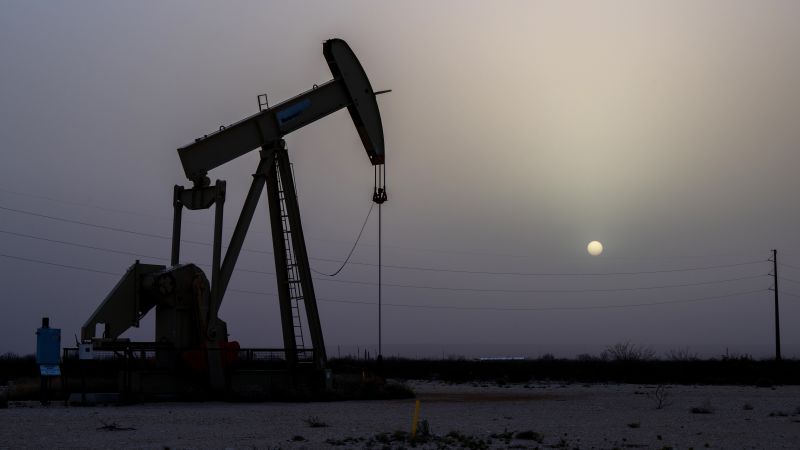The US economy is currently in a strong position, with a thriving jobs market and growing consumer spending. However, the rising threat of surging oil prices poses a significant risk to this positive economic environment. Both US and global oil prices are increasing, with concerns about a potential wider conflict in the Middle East driving prices up. As a result, gasoline prices have reached their highest levels in five months, which could negatively impact consumer spending and inflation levels.
The potential consequences of continually rising oil prices could lead to the Federal Reserve delaying interest rate cuts and causing concern among investors on Wall Street. Moody’s chief economist Mark Zandi has highlighted the negative impact higher oil prices can have on the economy, stating that it is one of the most serious threats to economic stability. Additionally, there are implications for political outcomes, with gas prices above $4 a gallon potentially influencing the November election in favor of former President Donald Trump, according to a model published by Moody’s.
The recent oil price rally has been primarily driven by geopolitical tensions, including drone attacks and threats of retaliation from Iran following an airstrike in Syria. There is a growing fear of further supply disruptions in the Middle East, which could push oil prices even higher. The risk of a wider conflict expanding beyond the current tit-for-tat cycle is also a concern, as stated by industry experts such as Helima Croft, from RBC Capital Markets.
The escalating tensions in the Middle East pose the greatest external risk to the US economy, according to chief economist Joe Brusuelas, due to the potential impact on oil and gasoline prices. While oil prices would have to spike significantly higher before threatening a recession, the current rise in gas prices is already affecting consumers. Strong seasonal factors, OPEC supply restrictions, and continued global uncertainties are contributing to the upward trajectory of oil and gas prices.
The increasing gas prices will have implications for upcoming inflation readings, as well as decisions by the Federal Reserve regarding interest rate cuts. Former Fed economist Vincent Reinhart believes that the risk of inflation is on the upside due to rising commodity prices, with oil prices being a key factor influencing households. Despite the growing risks, some energy market analysts remain cautiously optimistic about their forecasts, with expectations that gas prices may continue to rise but may not reach $4 a gallon nationwide in the near future.
Overall, the surge in oil prices driven by geopolitical tensions, particularly in the Middle East, poses a significant threat to the US economy and could have lasting impacts on consumer spending, inflation, interest rates, and political outcomes. The current environment of rising gas prices and continued uncertainties in the global oil market require close monitoring by policymakers and investors to navigate potential challenges and maintain economic stability.


